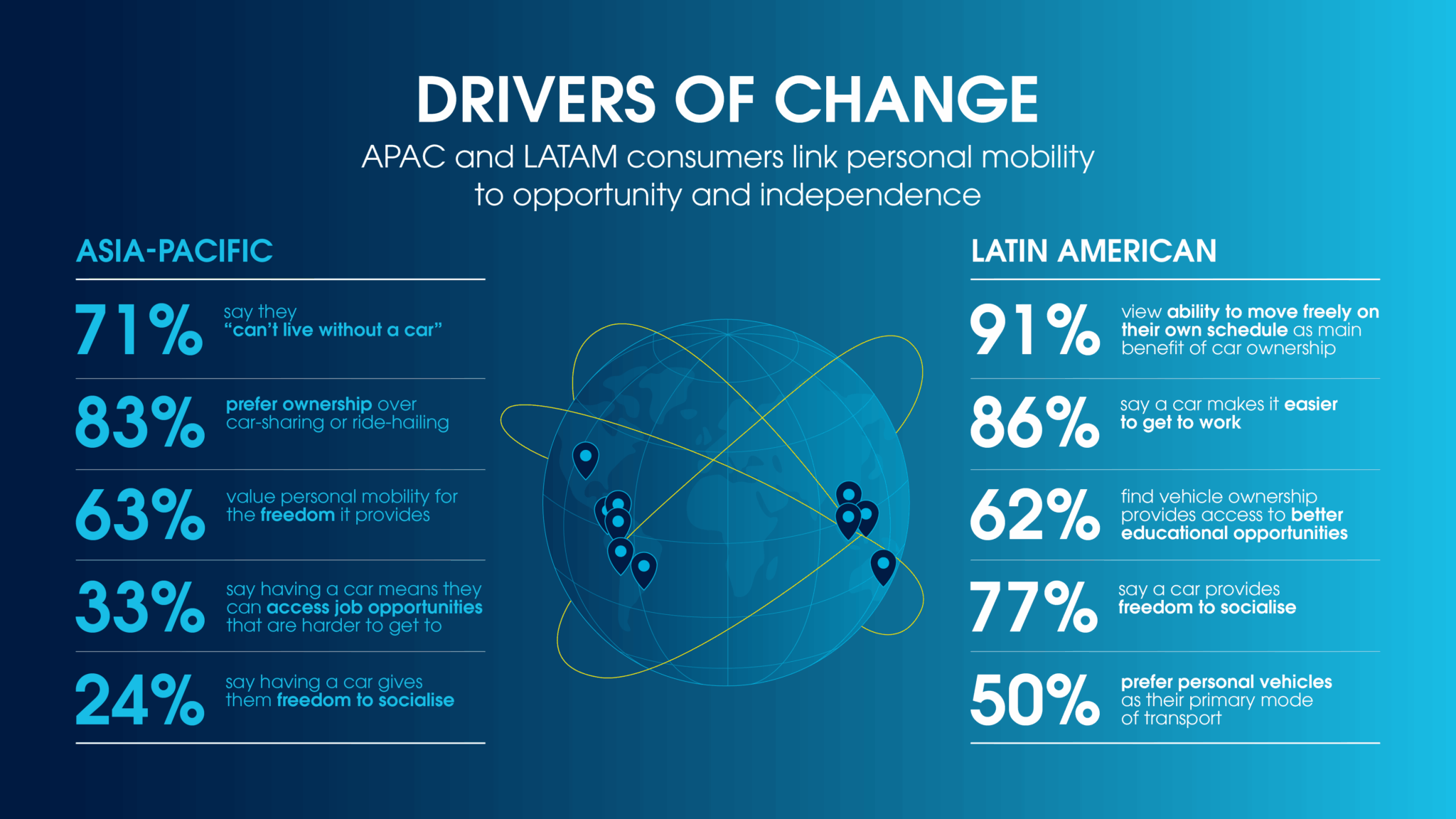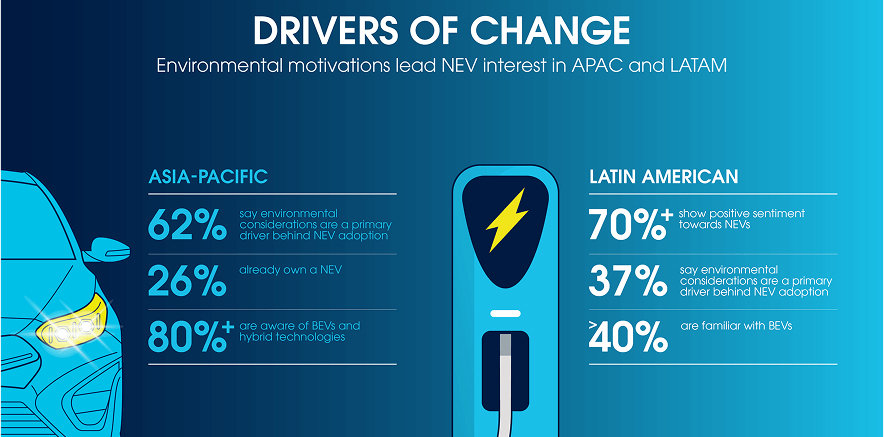Inchcape delivers insights into the global mobility transition
Inchcape unveiled the findings of Drivers of Change, a global study on consumer sentiment toward personal mobility and consumer readiness for new energy vehicles (NEVs). This first edition from Inchcape’s Centre for the Future of Mobility delivers actionable insights into how the global mobility transition can only be achieved through a localised approach. Findings show that the transition can be achieved faster, more equitably and more effectively through collaboration among policymakers, OEMs, distributors and the energy industry. Personal vehicle ownership is increasingly important for economic development and social inclusion, particularly in countries with limited public transport or ride sharing options.
Vehicle ownership opens opportunities for education and employment, as well as connecting people to their communities, friends and families. At the same time, tailpipe emissions from road vehicles still account for 15% of global greenhouse gas emissions. The industry is evolving to embrace this challenge, seizing the opportunity to play a role in this mobility transition by working to enable sustainable mobility and lower carbon technologies across vehicle categories.
To explore the findings in detail, you can download the report or read further below for key insights.
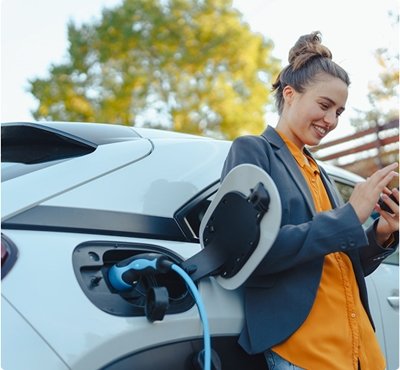
Drivers of Change
Drawing on surveys conducted across Latin America and Asia-Pacific (APAC) in early 2025 – reaching nearly 6,000 respondents across 13 countries – the research highlights:
- the central role that mobility plays in improving quality of life, social inclusion and access to essential services, especially in emerging markets;
- how consumers perceive and value NEVs, and their motivations and concerns around adoption;
- the differences between regions and markets and how there’s no one-size-fits-all solution; and
- the role of global distributors, OEMs, policymakers and the energy industry in driving the transition.
Discover more insights from Drivers of Change
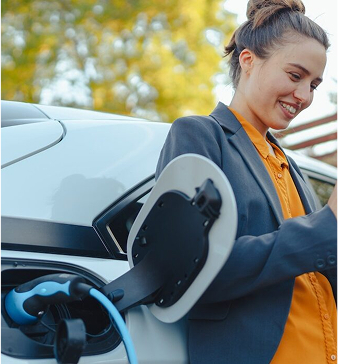
What support do consumers need to accelerate the transition to New Energy Vehicles?

Opportunity in motion: The role of automotive in driving social mobility
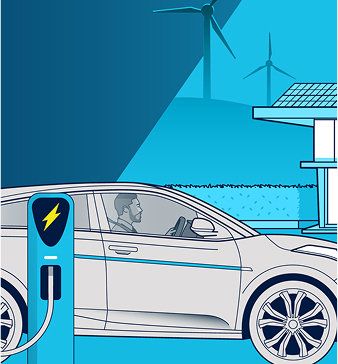
Drivers of Change - Inchcape delivers insights into the global mobility transition

Inchcape’s role in the future of mobility
This research marks the first in a series of studies to be published by Inchcape’s Centre for the Future of Mobility, a new knowledge platform dedicated to exploring how mobility transformation can be achieved sustainably, equitably and effectively across the globe. This is in line with Inchcape’s ambition of delivering solutions tailored to the real conditions of the communities we serve, bringing mobility to the world’s communities – for today, for tomorrow and for the better.

Drivers of Change





